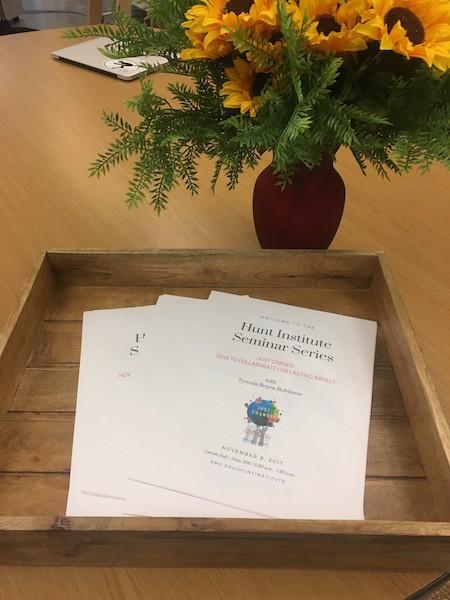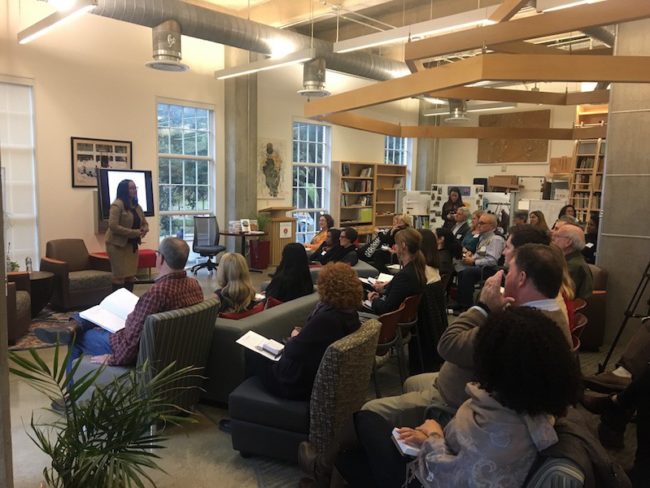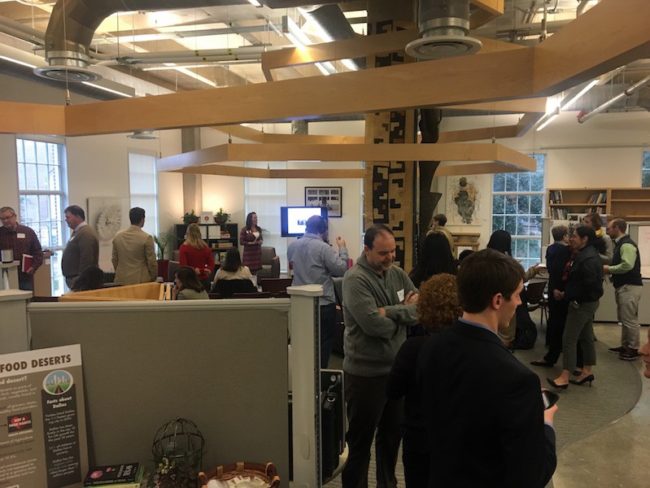
A group of scholars and nonprofit leaders fighting to better the lives of those in poverty gathered to hear Tynesia Boyea-Robinson speak about collaboration and change last Wednesday. Boyea-Robinson spoke to an audience of about 50 people as a part of the Hunt Institute Seminar Series about her book, “Just Change.”
Leaders at the Hunt Institute work to create innovative solutions that will create an economy that can better benefit everyone. Director of the Hunt Institute Dr. Eva Csaky leads the Inclusive Economy Consortium (IEC) which brings together community stakeholders in order to make a change.
“The consortium makes us think more systemically and collaborate to learn best practices,” Csaky said. “It was remarkable meeting with Tynesia and being able to collaborate. We couldn’t possibly have a more accomplished speaker.”
Boyea-Robinson’s book is about sharing stories on how to solve some of the world’s most pressing problems.
“People are still trying to solve problems from decades ago,” Boyea-Robinson said. “There are answers to these problems in chunks across the nation, but these leaders aren’t talking. I believe the problems people say are intractable are actually solvable with just a little collaboration.”

Boyea-Robinson received her MBA from the Harvard Business School and has a dual degree in electrical engineering and computer science from Duke University. She uses her education to work as the Chief Impact Officer at Living Cities, where she works to ensure that investment results in a measurable impact.
The audience was engaged throughout the entire presentation and participated in a Q&A session at the end. The group of scholars and leaders mingled before and after the presentation, discussing their individual research and putting Boyea-Robinson’s collaborative suggestions into action.

Anna Clark, a Hunt Institute fellow, is part of the ICE work as well. She is highly aware that collaborating within an organization can be difficult when innovative thinkers are encouraged to be competitive.
“We are very connected in our personal relationships, but we still have competition at work that can get in our way,” Clark said. “We have to move past that as best we can.”
Boyea-Robinson has worked with many competitive people and has been able to use that competitive nature to work in her favor.
“A creative competition model can really benefit innovation,” Boyea-Robinson said. “When groups are working in different cities, you can create competition between them, and it spurs better results in their respective communities.”








